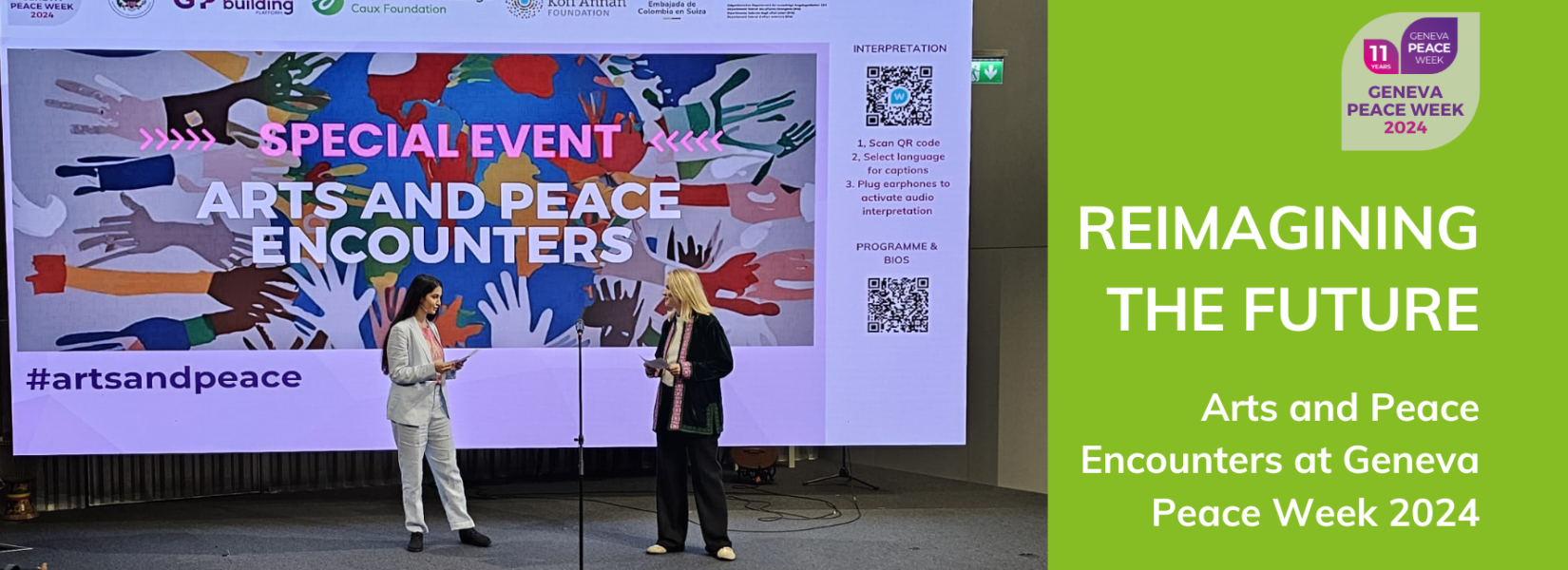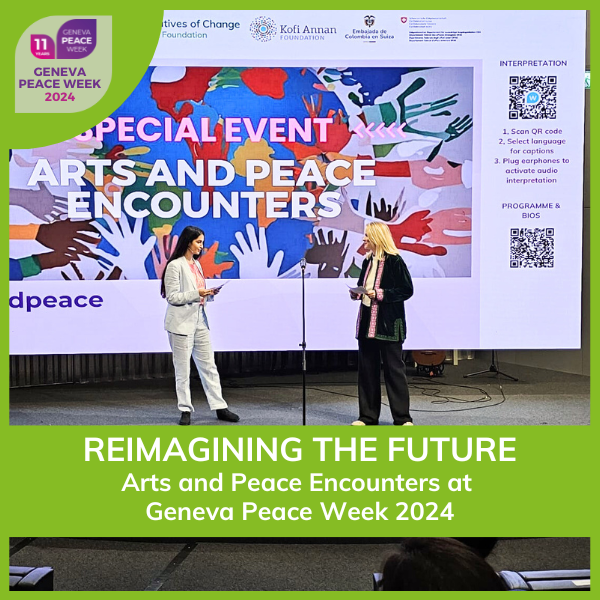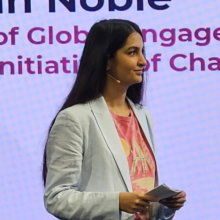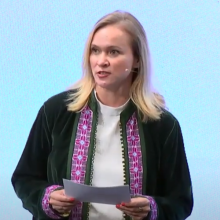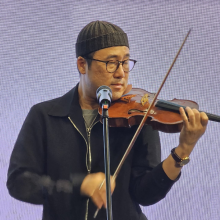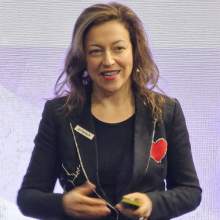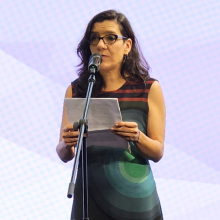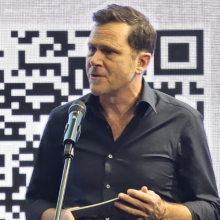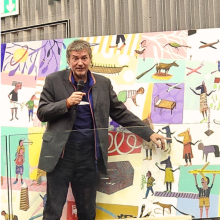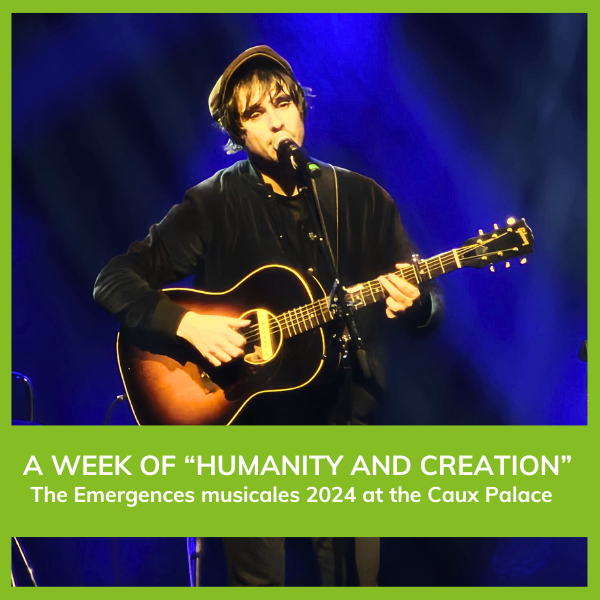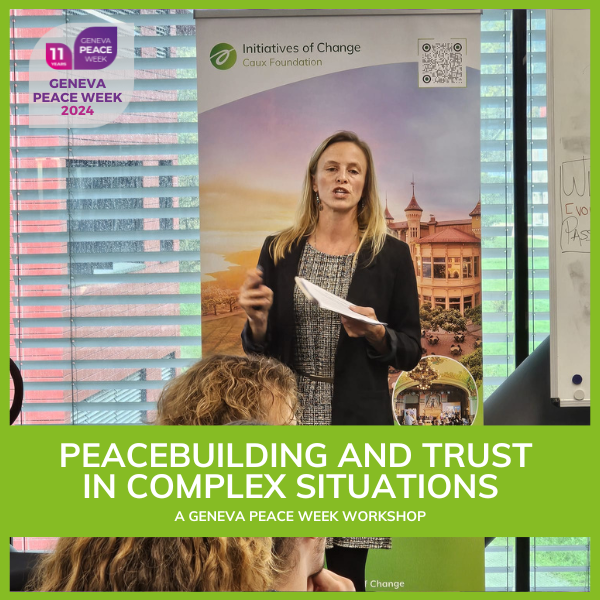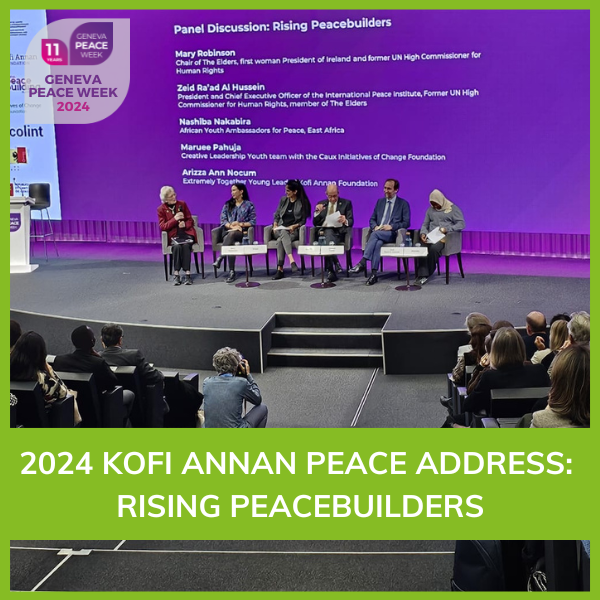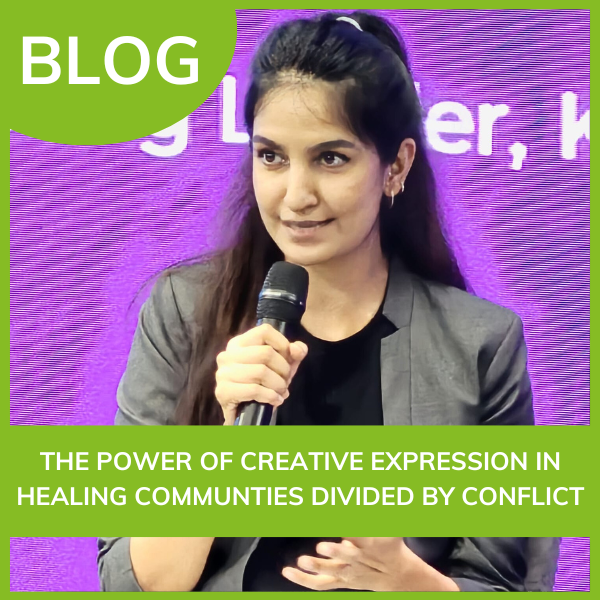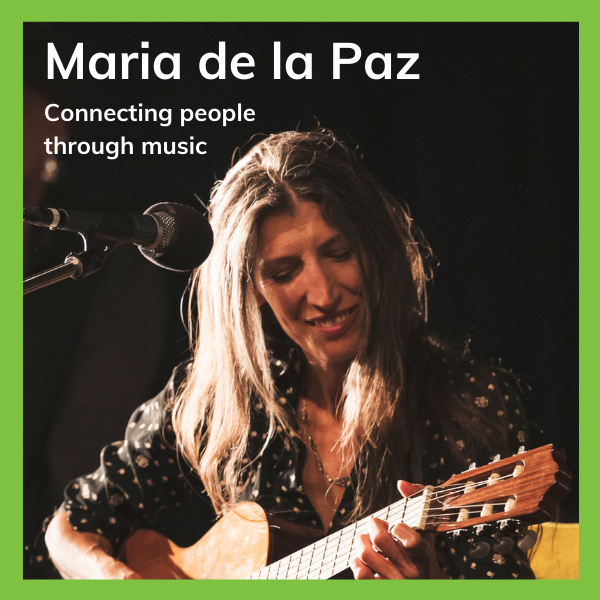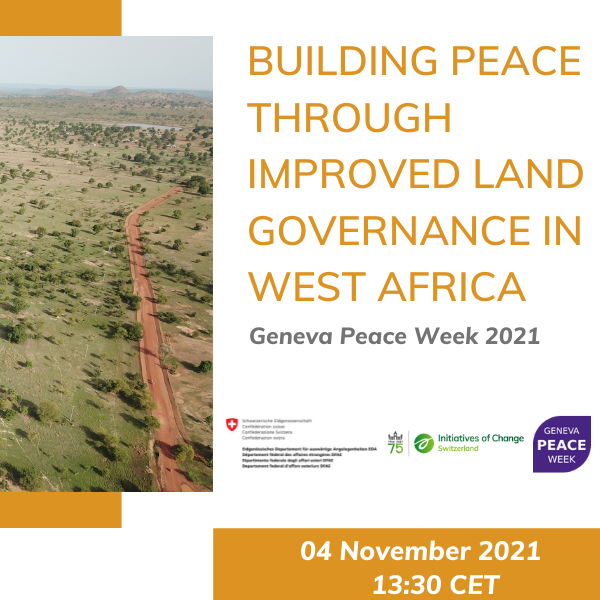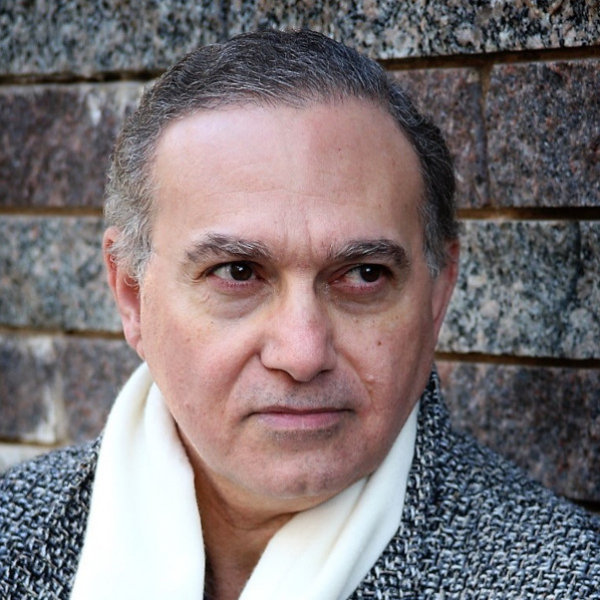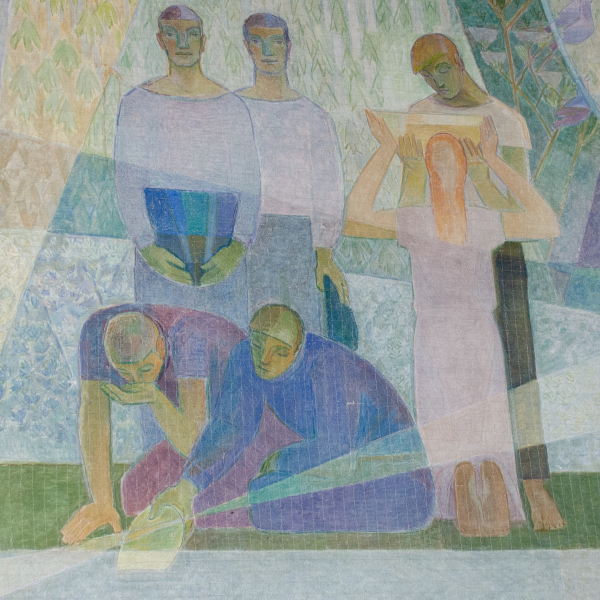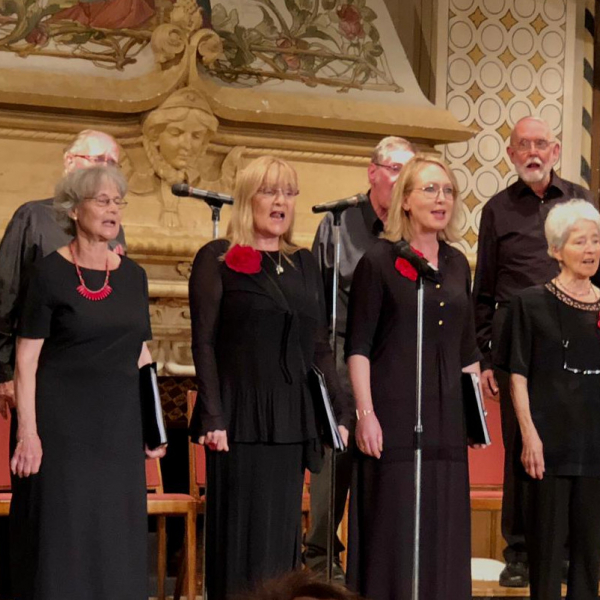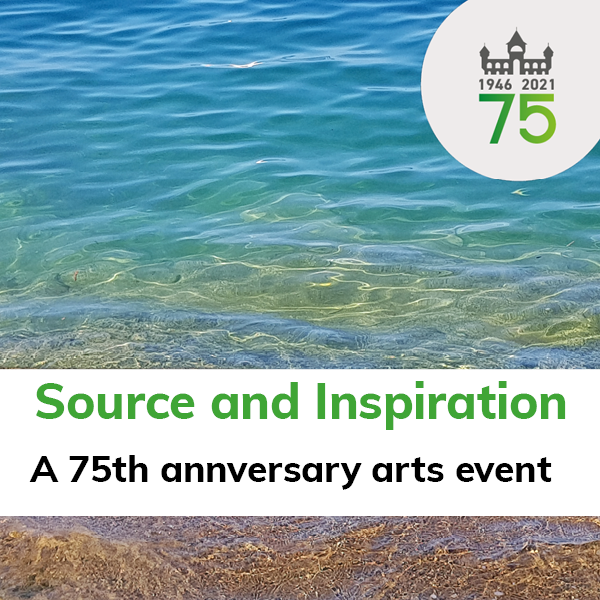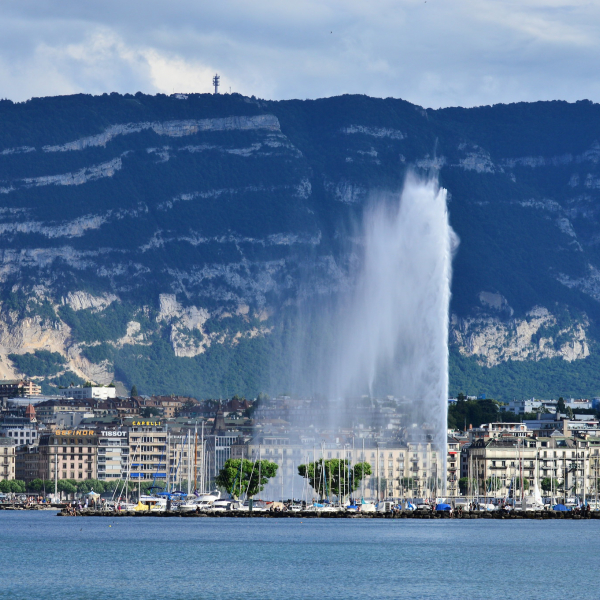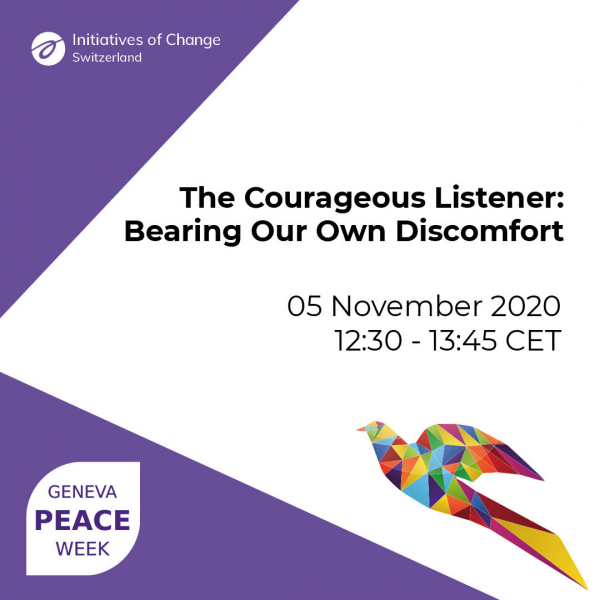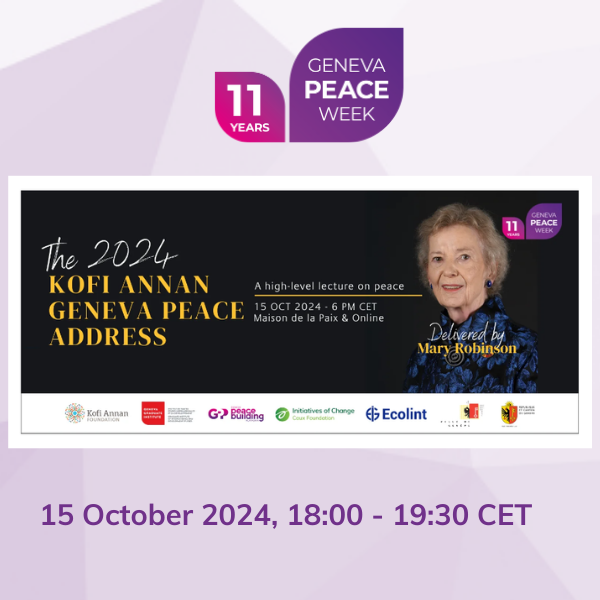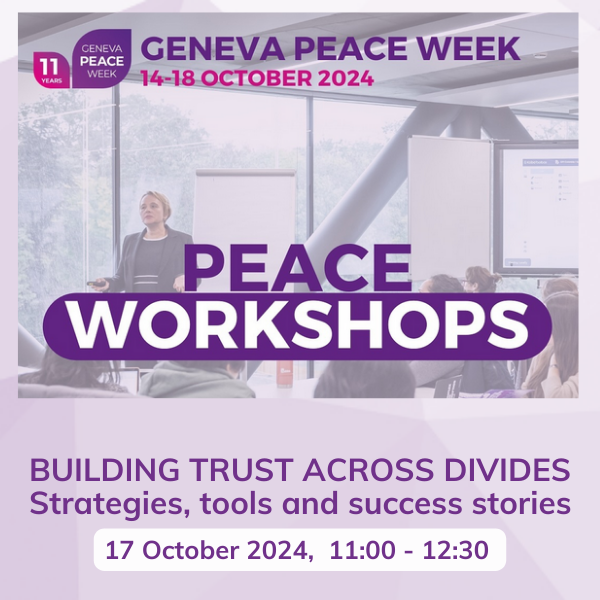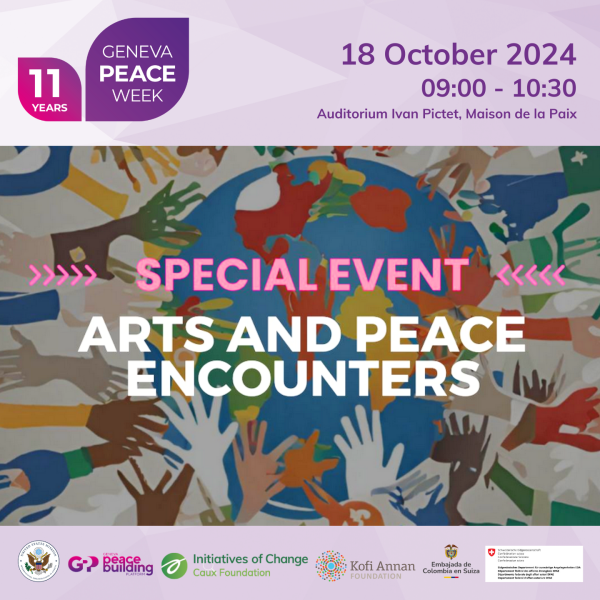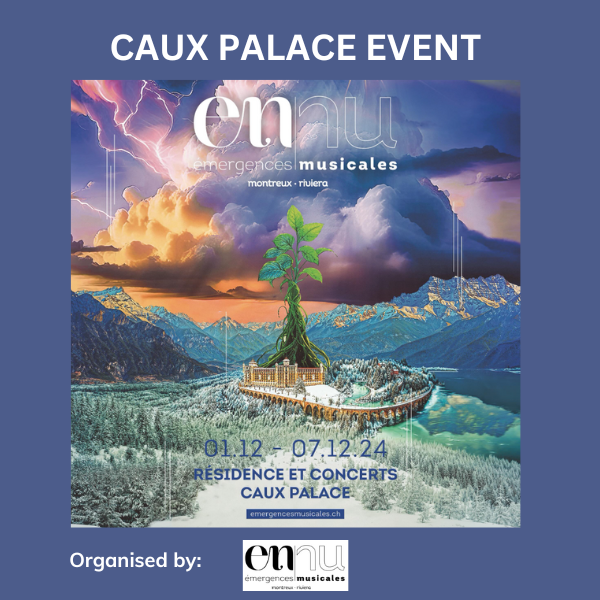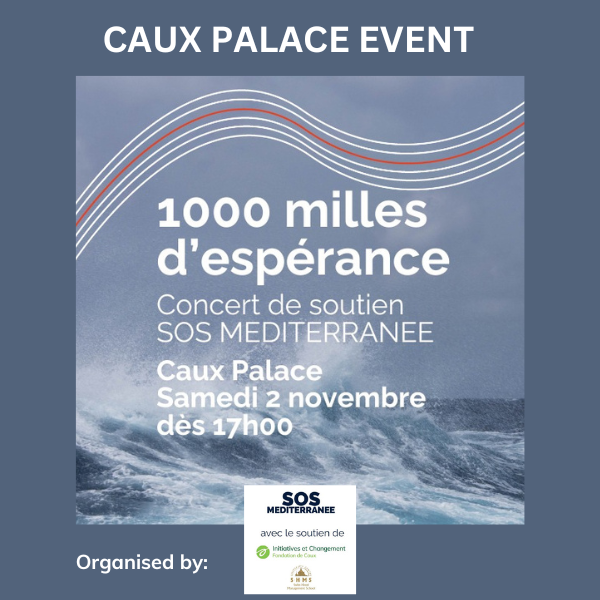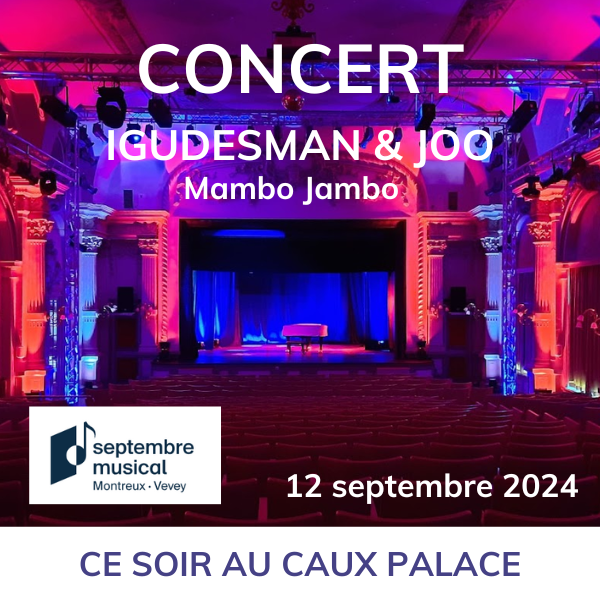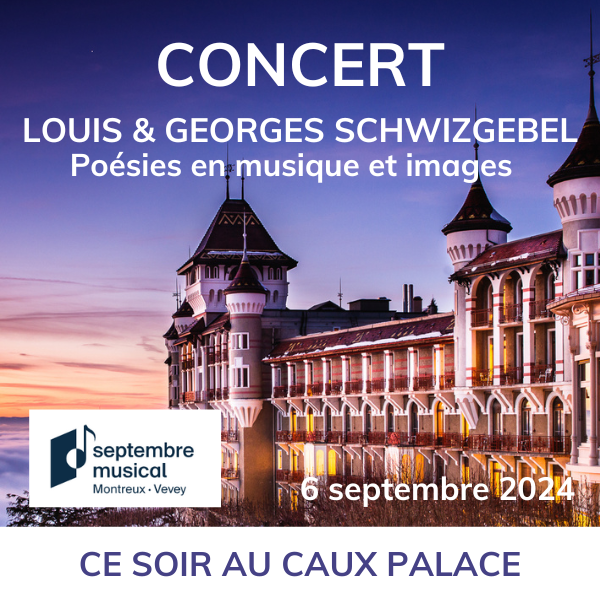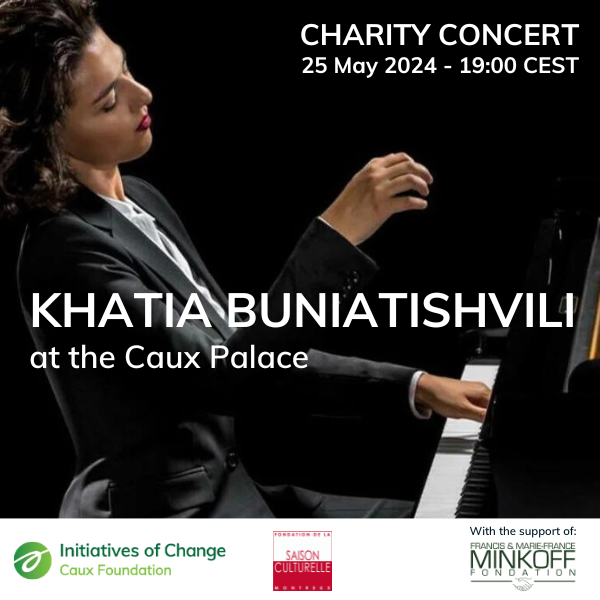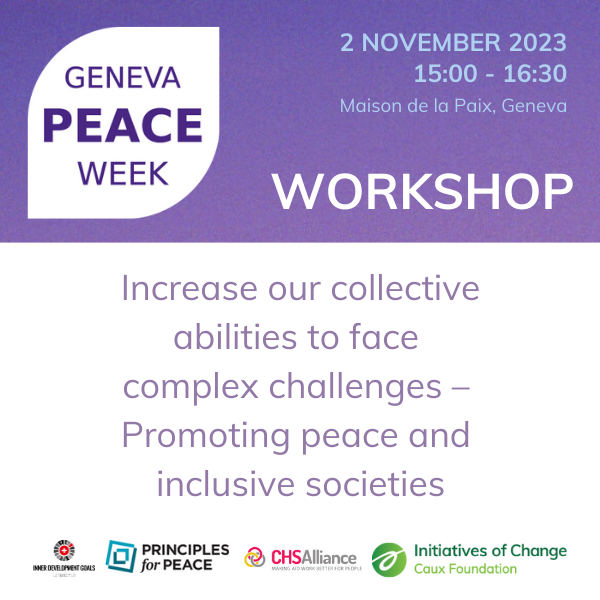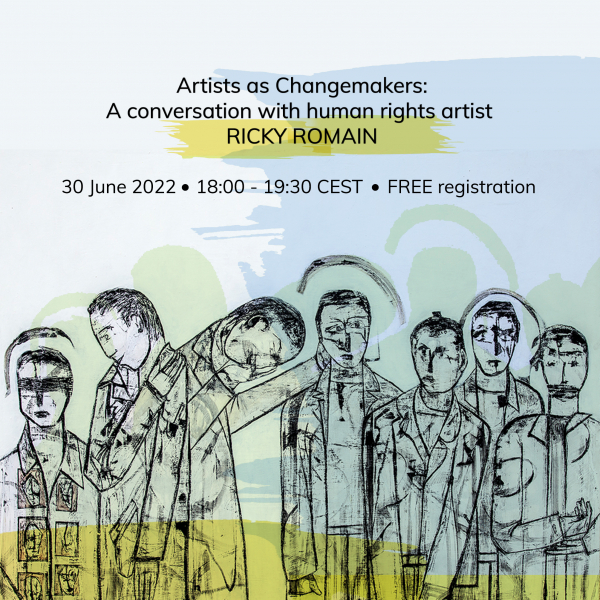Reimagining the Future: Arts and Peace Encounters
Geneva Peace Week 2024
15/11/2024
The Arts and Peace Encounters at Geneva Peace Week 2024, held on 18 October 2024, took us on an immersive journey through different forms of artistic expression, including music, theater, poetry and visual arts, combined with storytelling and presentations from peacebuilders and experts at the intersection of arts and peace. The event underscored the universal language of art as a tool for peace.
Hosted at the Maison de la Paix in Geneva, the event was organised This event is organised by the Caux Initiatives of Change Foundation in partnership with the Geneva Peacebuilding Platform, the Kofi Annan Foundation, the Embajada de Colombia en Suiza and the Swiss Federal Department of Foreign Affairs and made possible with the financial support of the Permanent Mission of the United States of America to the United Nations Office and other international organizations in Geneva.
The event was moderated by Maruee Pahuja from the youth initiative Creative Leadership, and Sarah Noble, Head of Global Engagement at Caux Initiatives of Change.
Introducing the event, Sarah Noble highlighted the crucial role that arts play in societal transformation, offering individuals and communities empathy, hope and the motivation to take action. “By engaging our imagination, the arts encourage a shift from binary and linear thinking to a holistic experience” she stated.
By engaging our imagination, the arts encourage a shift from binary and linear thinking to a holistic experience.
Sarah Noble, Head of Global Engagement, Caux Initiatives of Change
Speakers and Highlights
Hyung Joon Won - Tuning into Empathy with Music for Peace
South Korean violinist Hyung Joon Won reflected on how music can tune people into the emotions of others, bridging divisions. "In reality, tuning is empathy," he shared, explaining that musical harmony can symbolize the deeper, shared connections required for peace. Referencing the 1914 Christmas truce, he noted, "If we can find good tuning and empathy, we can stop war and bring peace together." Won closed his session with a poignant North Korean composition, with the hope for the two Koreas to start peaceful dialogues.
Dr. Guila Clara Kessous - Theater and Conflict Resolution
UNESCO Artist for Peace, Peace Ambassador and executive coach Dr Guila Clara Kessous emphasized theater's role in healing trauma and promoting human rights.
"The arts have the power to transmit and transform people," she explained, highlighting that theatre is a total art that involves the body as well. She described her feminist initiative, the Sarah & Hajar Accords, which aims to reshape diplomacy by improving women’s access to education and empowering more women to sit at the negotiation table and on governments. She explained “I do believe that this capacity of performing arts, this capacity of acting, that theatre is giving us, that art is giving us, can really change the world, especially with what I'm calling diplomatic entrepreneurship”.
JerusalemS Project - A Fresco for Unity
Carole Fumeaux, Secretary-General of Licra Geneva, and Alain Bittar, Director of the Institut des Cultures Arabes et Mediterranéennes, presented The JerusalemS project, whose “S” underlines plurality, welcoming our particularities in defending a common humanity. On display was the 8m long fresco created by artist François Burland that portrays a pluralistic vision of Jerusalem acting as a dialogue catalyst, encouraging conversations across differences and imagining a world where peace transcends religious and cultural boundaries. Interspersed with music, short verses and phrases were shared with the audience, including from the book “Une Bouteille à la Mer de Gaza” by Valerie Zinato, such as: “When agitation and fractions return as they have these days, i have the impression that we have forgotten what connects us”.
Diwele Molale Lubi and Delphine Digonnet - The role of the Arts in the liberation of the apartheid regime in South Africa
South African artist Diwele Molale Lubi and Delphine Digonnet, singer, songwriter and musician, shared how music and dance unified communities under the apartheid system,“generating those vibrations that create greater connection with us, the world and the universe”. They invited the audience to join in traditional chants, demonstrating how collective rhythm once fueled South Africa’s fight for freedom, underlining music's capacity to heal and unite.
Alejandra Quintana Martínez - Accordes por la Paz: Music and Gender for Peace
Alejandra Quintana Martínez from Alianza para la Paz showcased Accordes por la Paz, a Colombian programme in partnership with the Kofi Annan Foundation, using music education to empower youth and advance gender equity.
She recalled the story of a girl facing threats for her desire to play music, symbolizing resilience amidst Colombia’s conflicts. Martínez emphasized that "who wields an instrument will never wield a weapon," a powerful phrase used to highlight the role and magical powers of music in reducing violence, particularly in countries like Colombia where conflict has left deep scars and noting that music can be a transformative force, urging us to “intentionally adopt methodologies and pedagogies that foster reconciliation, social emotional skills and human rights through a gender and intersectional lens “.
She concluded by saying that “peace will be with girls and women or will not be at all.” The project’s name, Accordes, carries dual meanings—‘chords’ and ‘agreement’—signifying harmony as essential to peacebuilding.
Rudi von Planta - A Swiss Perspective on Culture and Peace
Rudi von Planta from the Peace Governance, and Equality Section at the Swiss Federal Department of Foreign Affairs, shared the Swiss perspective on culture and peace, based on the paper: Réflexions : culture et pérennisation de la paix. He explained: “Art is more than esthetics. It's a universal language that transcends borders and ideologies. Art brings people together by fostering empathy, offering alternative narratives and creating spaces for dialogue.”
He argued that art can create safe spaces for dialogue and shift perceptions, which can lead to transformative changes. "Art builds resilience," he stated, "and provides hope in crisis when normalcy seems unattainable." He underscored that art’s role in peacebuilding is as crucial as formal diplomacy, noting that "we must think of arts and culture as a virtual space where empathy can flourish."
Fernando Cometto - A Canvas for Peace
The Argentinian painter Fernando Cometto, artist in residence during the Geneva Peace Week, engaged with event attendees and captured the essence of the conversations in a unique art piece symbolizing the conversations around peace. Through bold strokes and recycled materials, Cometto’s painting speaks to the "dynamic interplay between imagination and reality," a reminder that creativity fosters resilience and universal connection.
Art is more than esthetics. It's a universal language that transcends borders and ideologies. It brings people together by fostering empathy, offering alternative narratives and creating spaces for dialogue. It builds resilience and provides hope in crisis when normalcy seems unattainable. Art offers a glimpse of a reimagined future.
Rudi von Planta from the Peace Governance, and Equality Section, Swiss Federal Department of Foreign Affairs
Conclusion
The Arts and Peace Encounters at the Geneva Peace Week demonstrated the profound impact of art as a medium for empathy, transformation, and unity. Each speaker contributed insights that reinforced art’s role in peacebuilding: from creating understanding and shared identity to fostering safe spaces and challenging the status quo.
As Rudi von Planta poignantly noted, “Art offers a glimpse of a reimagined future,” encapsulating the event’s message that, through artistic expression, a more peaceful world is not only imaginable but achievable.
The event highlighted art's transformative potential, encouraging a shared vision where creativity and empathy lead the way toward peace.
Find out more about the Caux Foundation's Arts and Peace Encounters programme and stay tuned for the upcoming Arts and Peace Encounter 2-day programme at Caux Palace, Switzerland on 13-14 May 2025.
